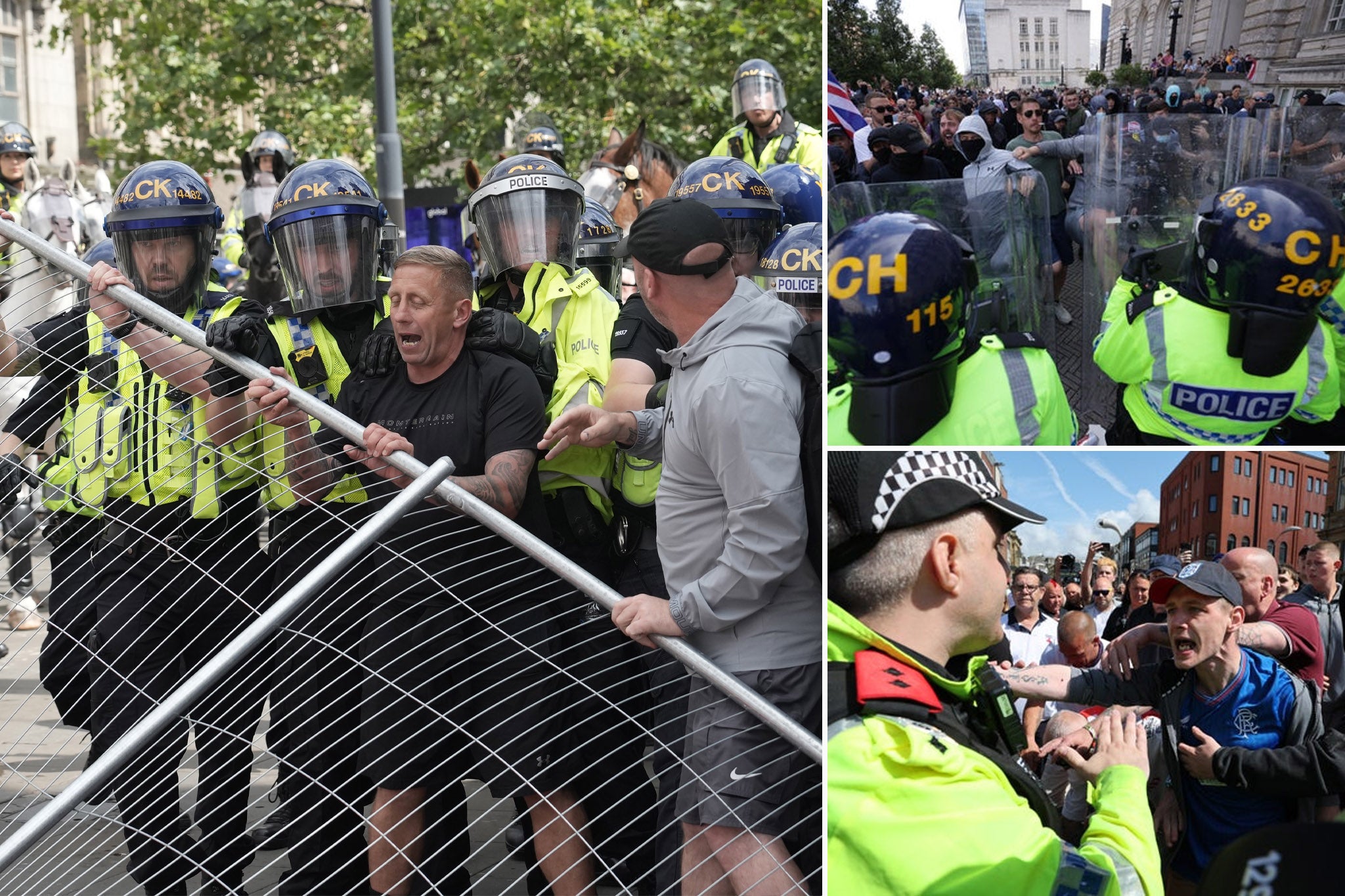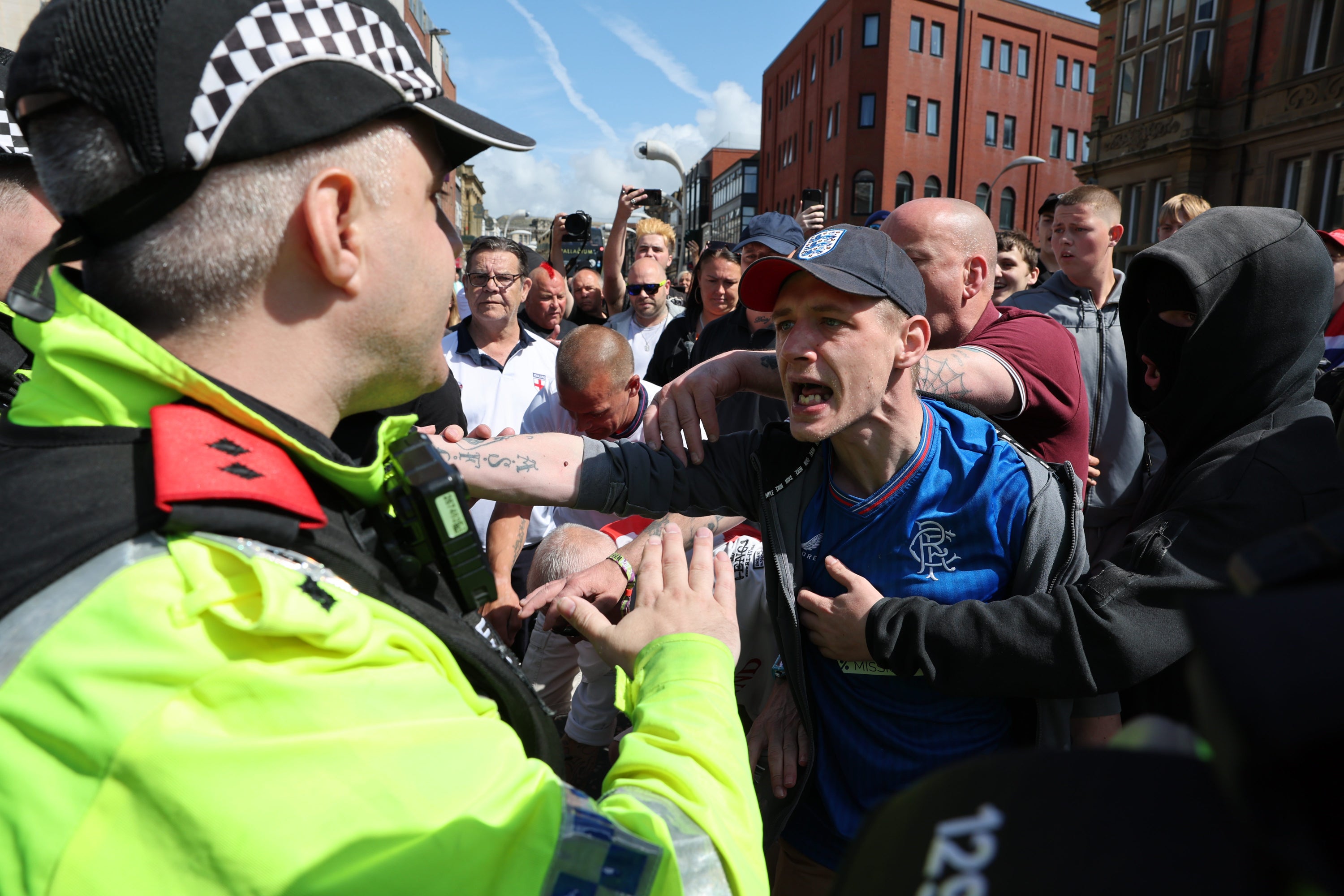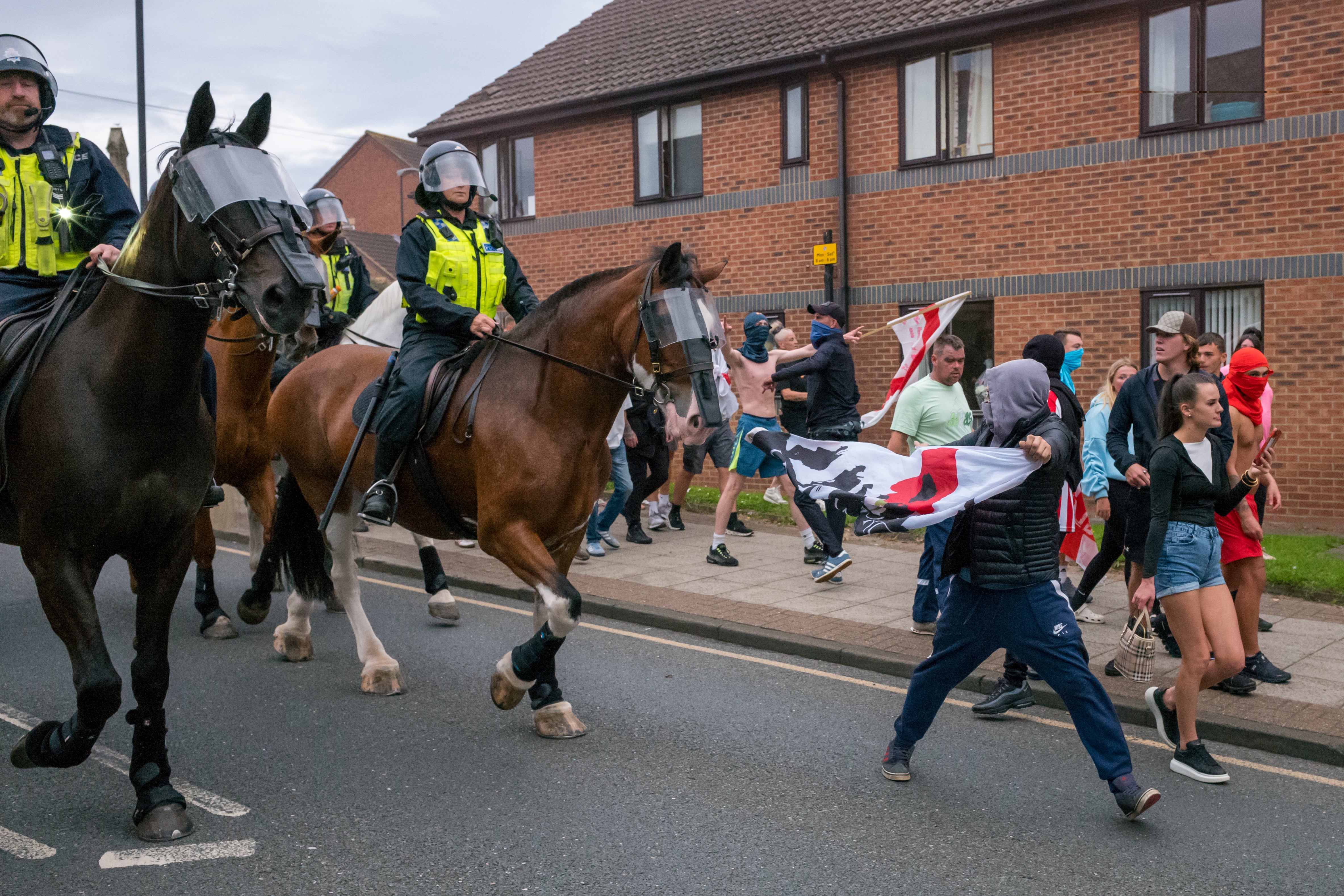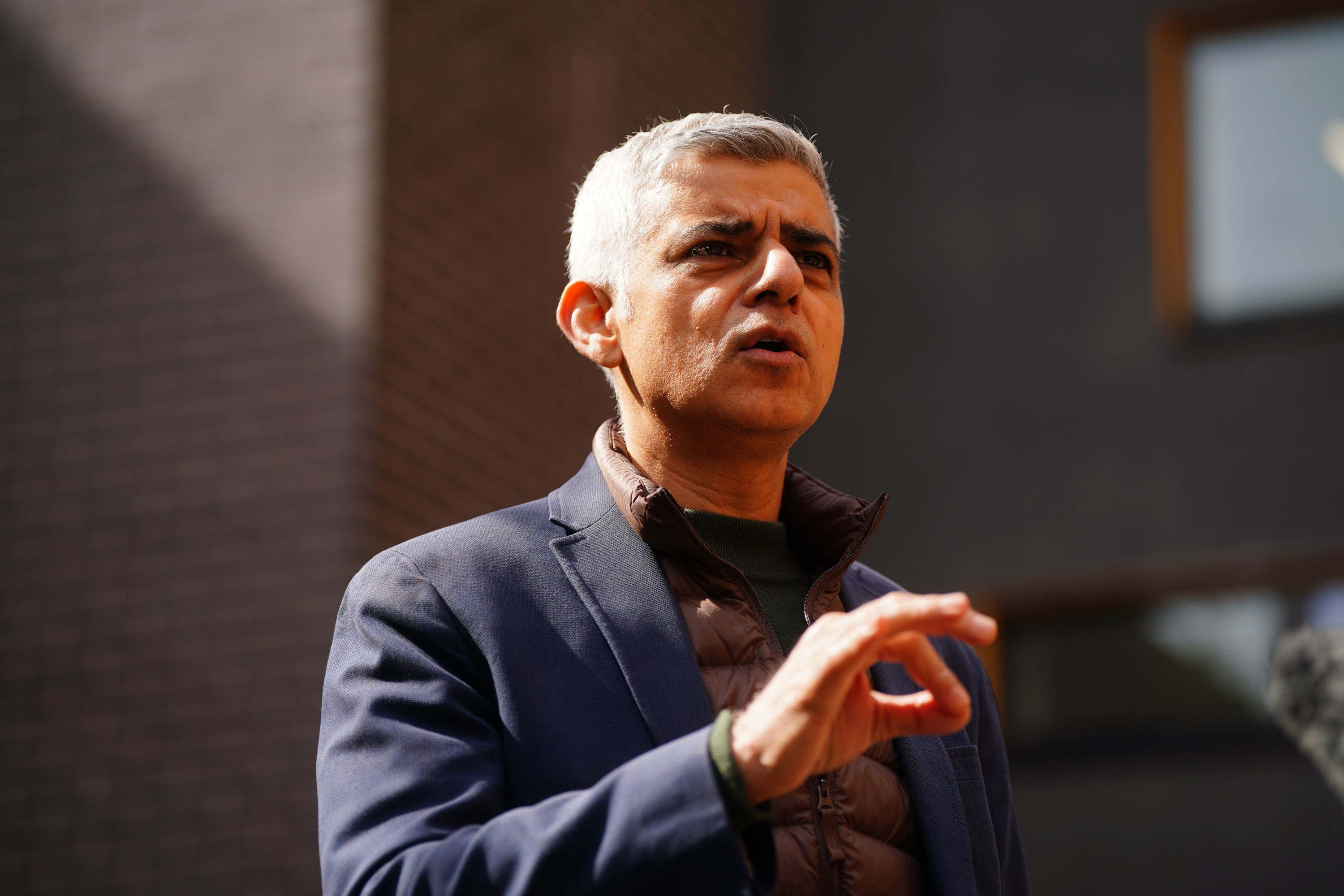How UK’s deep rooted Islamophobia problem stoked far-right riots
Anti-Muslim sentiment ‘simmering under the surface’ of British society, experts and religious groups warn
Your support helps us to tell the story
From reproductive rights to climate change to Big Tech, The Independent is on the ground when the story is developing. Whether it's investigating the financials of Elon Musk's pro-Trump PAC or producing our latest documentary, 'The A Word', which shines a light on the American women fighting for reproductive rights, we know how important it is to parse out the facts from the messaging.
At such a critical moment in US history, we need reporters on the ground. Your donation allows us to keep sending journalists to speak to both sides of the story.
The Independent is trusted by Americans across the entire political spectrum. And unlike many other quality news outlets, we choose not to lock Americans out of our reporting and analysis with paywalls. We believe quality journalism should be available to everyone, paid for by those who can afford it.
Your support makes all the difference.More ugly scenes have unfolded on the UK’s streets on Saturday, as police continue to grapple with a wave of far-right disorder across the country.
Cities in England and Northern Ireland saw violence perpetrated by anti-immigration rioters with police officers injured as objects such as bricks, chairs and bottles were thrown at them.
The far-right has drawn condemnation from MPs across the political spectrum after race riots in London, Manchester, Southport, Hartlepool and Sunderland over the past week, many of which have seen mosques and other Muslim religious buildings targeted.
With more marches planned in the coming days, experts have warned such demonstrations are being driven by deep-rooted Islamophobic sentiment among some sections of the population.
The catalyst for the wave of unrest was the killings of three young girls at a Taylor Swift-themed dance class in Southport, Merseyside, on Monday.

Axel Muganwa Rudakubana, 17, who was born in Cardiff and lived near Southport, is accused of the attack, but false claims spread online the suspect was named “Ali al-Shakati” and was an asylum seeker of Muslim faith who had arrived in the UK by boat in 2023.
Racial equality and civil rights think tank the Runnymede Trust warned that this “violent racism has long been simmering under the surface” of society.
“What is happening is the direct result of years of normalised racism and Islamophobia, enabled by politicians and the British media,” a charity spokesperson said.
There has been an upsurge in Islamophobic incidents and rhetoric in recent years.
According to Home Office data, race and religious hate crimes are high with Muslims being the most targeted religious group.
A landmark report published in 2023 revealed that Islamophobic incidents doubled across Britain between 2012 - 2022, citing reasons such as increased far-right activity, global anti-Muslim attacks, political discourse and the Brexit referendum campaigns.

Yet, authorities stand accused of doing nothing to address this spike; it recently emerged that the previous Conservative government’s anti-Muslim hatred working group (AMHWG) was “on pause” for more than four years, from 2020 until the party’s general election loss, despite repeated promises from officials and an increase in hate crime.
The new Labour government’s strategy for tackling Islamophobia remains unclear and Sir Keir Starmer has been criticised for failing to engage enough with Muslim communities in the wake of disorder.
Writing on X/Twitter, the Muslim Association of Britain said: “@Keir_Starmer had no problem meeting @MuslimCouncil when he was in opposition.
“Now that he is in government, and Muslims are being attacked and Mosques have become targets, his government have no plans to meet the largest body representing Muslims in the UK. What changed?”
Recently, The Independent revealed that a Muslim political group was “inundated” with racist abuse and violent threats during the general election, resulting in a report being made to the police.

In March, Muslims in Britain reported that they are too scared to leave their homes after dark, as new figures from a London charity, Islamophobia Response Unit (IRU), showed the number of Islamophobic incidents skyrocketed by 365 per cent since the 7 October attack on Israel by Hamas.
Political discourse and dynamics have also fuelled anti-Muslim sentiment, campaigners have said.
In response to the unrest, Qari Asim, chairman of Mosques and Imams National Advisory Board, said Muslims around the country are “deeply worried and anxious about the planned riots by the far-right groups across the country”.
He said: “This intimidation and violence is the inevitable, devastating, outcome of rising Islamophobia that has been enabled to fester on social media, in parts of the mainstream media and by some populist leaders.”
Earlier this year, former Tory MP Lee Anderson’s remarks about the Muslim Mayor of London Sadiq Khan being “controlled” by “Islamists” led to his suspension from the party.

Despite this, Mr Anderson remained unapologetic about his comments, defected to Reform UK, and doubled down by saying “most of the public agree with him”.
An independent review led by Professor Swaran Singh in 20121 found that “anti-Muslim sentiment remains a problem” within the Conservatives and although an updated report in 2023 found the party had made progress, it also warned it had been slow to implement some of his recommendations.
A report by the Labour Muslim Network (2020) highlighted consistent experiences of Islamophobia among Muslim members and supporters and a number of MPs, including Zarah Sultana, have called for the party to launch an inquiry into the issue.
Sections of the media have also been accused of peddling Islamophobia and risking the safety of Muslims around the country in the process.
Examining over 10,000 articles and clips referring to Muslims and Islam in the winter period of 2018, a 2021 report from the Muslim Council of Britain’s Centre for Media Monitoring (CfMM) found that the majority (59 per cent) of all articles associated Muslim people with negative behaviour, over a third of all articles misrepresented or generalised about Muslim people and terrorism was the most common theme.
